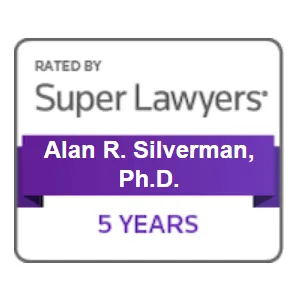Representing Parents in Child-Custody Disputes
Strategizing the best solutions for California families since 1993
Founded in 1993, Silverman Family Law, APC, puts children first in divorce. Exercising my skills in mediation and collaborative-law techniques, I can guide most of our clients toward beneficial agreements. However, I am prepared to resolve contentious disputes through litigation if it is most beneficial to you and your children to do so.
Legal and physical custody
Under California Family Code §3040-3049, courts are directed to grant custody that serves the children’s best interests. Legal custody refers to your decision-making rights and physical custody refers to the children’s residences. Depending on the facts of your case, the court is authorized to order:
- Joint legal custody — In a joint custody arrangement, each parent may make decisions regarding a child’s health, education and welfare. Unless an order to the contrary exists, a parent may make decisions about such issues as the child’s school and health care. Except in high-conflict cases, it is often preferred that the parents collaborate on these decisions.
- Sole legal custody — In a sole custody arrangement, only the parent with legal custody may decide regarding the child’s health, education and welfare.
- Joint physical custody — The children live with both parents for substantial periods of time in a joint physical custody arrangement. Each parent’s amount of time does not have to be equal to the other’s. For example, a parent with a 30% timeshare may have joint physical custody.
- Sole physical custody — The children live with one parent the vast majority of the time, and the other parent is granted child-visitation rights in a sole physical custody arrangement. Physical custody is important in those cases when a parent wants to move away and change the children’s residence. In these cases, the Court will look at the actual timeshare rather than the label of sole or joint physical custody.
Rights of parents with legal custody
Legal custody confers the right to make the essential decisions about raising your children. An order for joint legal custody means that either parent acting alone has the right to make decisions affecting the health, education and welfare of the child. This concept is often misunderstood. Joint custody does not mean you have to agree with the other parent about every decision; rather, each parent confers with the other parent so as to avoid generating unnecessary and problematic conflicts. Sole custody confers ultimate decision-making power about important issues, such as:
- Routine medical and dental care
- Psychiatry and mental health counseling
- Choice in school and scholastic direction
- Childcare and afterschool arrangements
- Participation in sports, summer camps, theater and other extracurricular activities
- Travel opportunities
- Religious institutions, teachings and rituals
- Place of residence
Factors the court considers in decisions about child custody
The court’s primary child-custody consideration is the children’s best interests. To make the right decision, the court considers many factors, including:
- Sustaining continuity and stability with the children’s current arrangement
- Both parents’ relationships with the children
- Each parent’s history of involvement with the caretaking duties
- The safety and security of each home
- Whether violence, alcohol or drug dependency, or other dangerous circumstances exist
- The relationship of the children with siblings who live in the homes
- Each parent’s likelihood of encouraging a relationship between the children and the other parent
My 15 years in the psychology profession uniquely qualifies me to handle challenging matters involving substance abuse, domestic violence, restraining orders and parental estrangement or alienation, and to help you cope with high-conflict custody issues.
Consult with our firm for solutions to your child custody issues in North County
To learn more about your rights in a child custody case, call Silverman Family Law, APC, at 760-512-3251 or contact me online to schedule your free, initial phone consultation.
Silverman Family Law, APC, located in Carlsbad, California, serves clients in and around Carlsbad, San Diego, Vista, Escondido, Del Mar, Solana Beach, Rancho Santa Fe, Encinitas, La Jolla, Mira Mesa, Poway, Rancho Bernardo, San Marcos and all North County San Diego.






